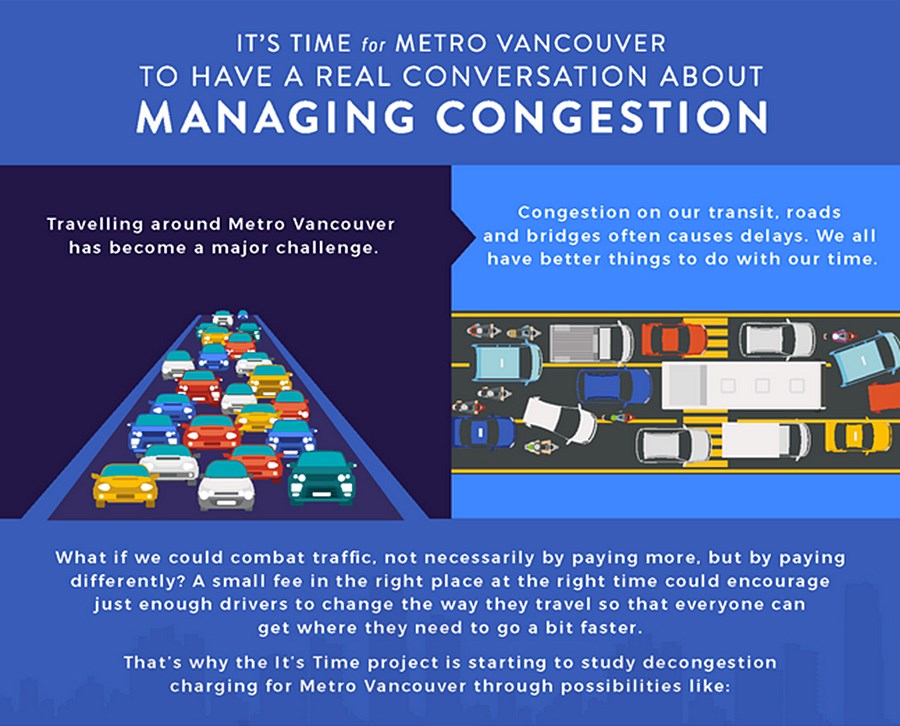Tri-City residents can find out how proposed mobility pricing will affect them and have their say about it in a new round of public engagement for the region’s Mobility Pricing Independent Commission.
This week, the It’s Time project launched the second phase of its public engagement program with a 15-minute survey that asks people what they think about changes to the fuel tax, charging for distance driven or charging at congestion points.
“In our first engagement, more than 6,000 residents and stakeholders shared their perspectives on congestion, and principles such as fairness and affordability that we are considering as we study new ways to approach mobility pricing,” stated Allan Seckel, chair of the Mobility Pricing Independent Commission in a press release.
“Now that we have some examples of how decongestion charging could work, we need more feedback to ensure that the commission’s recommendations are informed by the needs and priorities of the public.”
The commission’s study is the first step in a multi-year process that will require additional research before local and provincial governments can make an informed decision as to whether or how to proceed with changes to mobility, the press release further states.
The new engagement platform at www.itstimemv.ca presents short videos, maps, and potential strengths and weaknesses of a series of examples.
The platform also asks for general feedback such as whether people would prefer a scenario where “everyone pays a little bit every time they drive” versus “only those people who drive in congested areas and at busy times are charged.” Residents are also being asked to comment on what choices are available to them if decongestion charging was introduced.
The Mobility Pricing Independent Commission will provide its recommendations this spring in a report to the TransLink Board of Directors and Mayors' Council on Regional Transportation, who will decide on next steps.



